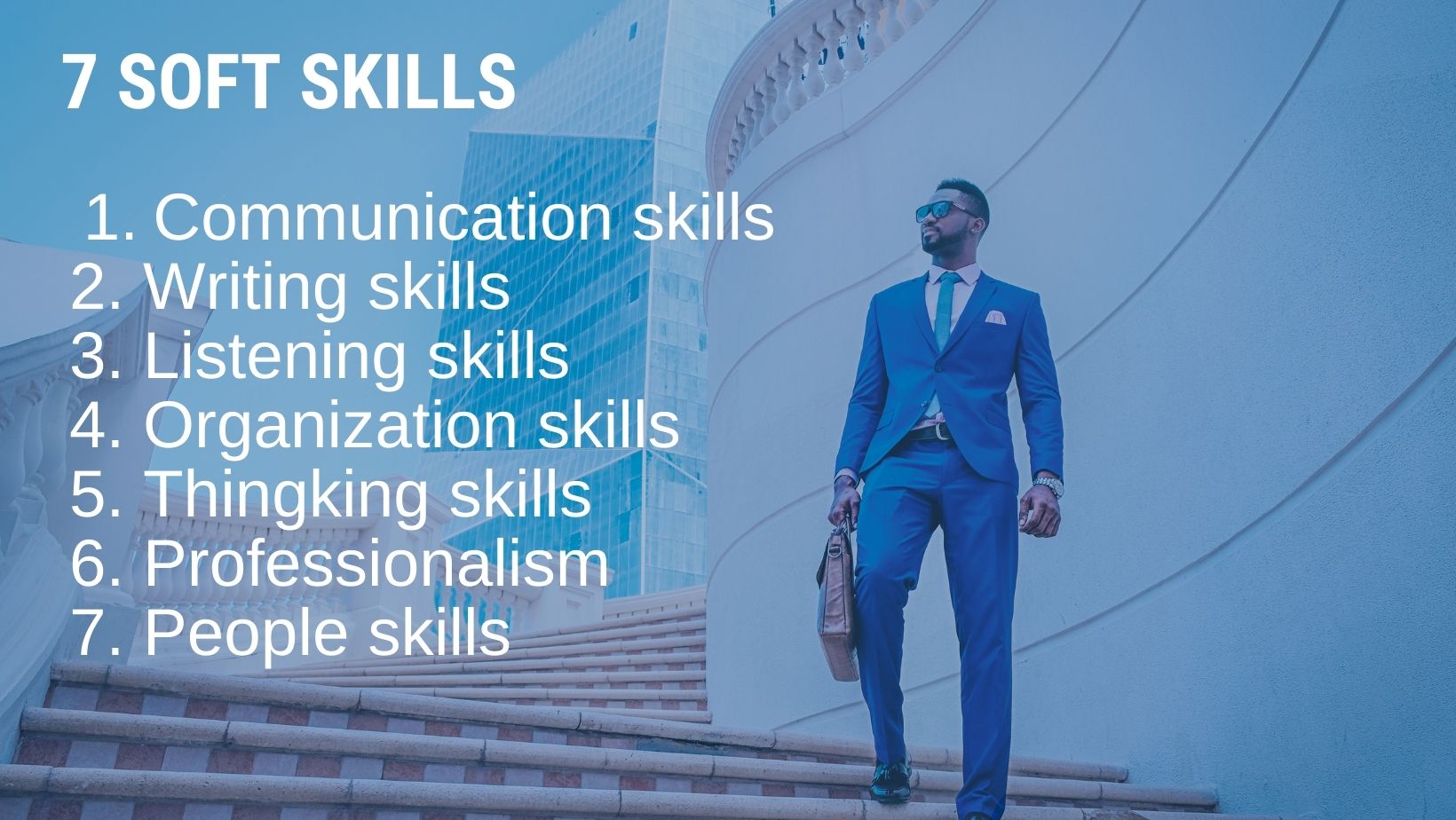Soft skills that make you different, there are:
1. Communication skills
No matter where you speak, it is important to be clear about what you want to say, in what tone you are speaking, how your body language is speaking, whether the timing is right. So when you are talking about something, make it clear to yourself what you are saying about it. Many spoke very quickly. Again, the voices of some people are such that they cannot be understood. In the case of verbal communication, however, you need to speak very clearly so that others can understand. This is what we are teaching in the 30-day session of “Eliminating the Inertia of Talking”.
2. Writing skills (soft skills)
It is also a skill to express clearly what you are thinking. So, in any case, whatever you have to write, be it a project report, business profile, or class notes, everything should have cleanliness. In particular, in a job or business, if you have to create a memo for a coworker or a report for the boss, then you have to understand what to write, how much to write. In a nutshell, make it a habit to write something in straightforward language. At the same time, you have to keep in mind that the grammar, punctuation, and spelling in the text should be correct.
3. Listening skills
This is also a great skill. Anyone who listens to others in the workplace, that is, the ‘good listener’, or their importance is different. But they are seen as productive workers. Because if you hear something quickly and understand what is being asked of you, then it is to your advantage. This will bring the boss’s attention and will also create good relations with colleagues.
If you can make this habit in your personal life too, there are many benefits in making different decisions in life and understanding other people. But not everyone is a good listener. Again, many times those who are considered good listeners, also behave in such a way that it seems that he is not paying any attention. Those who listen attentively will see that they do a few things. For example, talking eye to eye. When the other person speaks, do not speak in his or her words. Don’t be fussy. Shake your head between words. Sitting slightly leaning towards the speaker. Only after the speaker has finished asking the necessary questions.
4. Organizational Skills
There are some people who can work very well. Those who have such skills will see that they can do any work without any haste. Multiple assignments can be done very easily and mistakes in their work are nominal. Many of us can’t work properly. But this habit can be created by doing a few things.
The first task is to make a list of tasks. This time, which work is more important and which work is less important, it is to share. As you finish the work, keep ticking. Smartphone, computer, tablet, or handwritten notebook — whichever is convenient, keep this list. Set a deadline for each task on the calendar. Keep with reminders if needed. Follow a routine.
5. Thinking Skills (soft skills)
Don’t take for granted what others think. Emphasize your thoughts and ideas. Now the competition in the job or business, the more creative he can be in his work, the more he will go ahead. If there is a problem, most people will deal with it. But the one who solves the problem is the leader. As a result, judging the situation with a cold head, reasoning, it is wise to find a solution.
The ability to make decisions is a great skill. You need to make a decision according to what you think is right, by understanding what a situation requires, and by thinking about what the solution might be. Many people can point out different paths, but when asked to identify one path, they are hesitant. Being able to make a decision after overcoming that is great quality.
6. Professionalism
The above word is important in work. This can change a lot of things in your workplace. There are a few things to keep in mind. A few examples can be given in this formula. Arrive late at work or at a meeting. The idea is, you don’t value work.
The same rule applies when going to bed for lunch. If you spend a lot of time chatting while eating, it is better not to do so. If you’re in a bad mood at home or somewhere else, don’t bring it to work. You have to look at the clothes. Formal or casual, keep it clean. Usually, wear formal on weekends. And, casual on the weekends. Many have a habit of gossiping with colleagues. It is better not to do all this in the office.
If you make a mistake, take it upon yourself. Do not try to impose excuses on others. Learn from mistakes. Maybe you have one thing in common, your co-worker or your boss. If he does not accept your opinion and wants to use his own opinion, do not get unnecessarily angry or shout. You can try to explain to him, from which side you have seen the matter. Even after that, if he does not agree, it is better not to go further.
7. People Skills
The way you interact with people at work or in your personal life gives you an idea of who you are. Your behavior, respect for others, keeping in touch with people, all of these things are very important to be a successful person.
Most people have a goal, where they are working, at some point, they will reach the level of leadership. There are some things to keep in mind to build this leadership skill. For example, persuading everyone to form an opinion within a group is a big deal. He needs to know how to express his thoughts and feelings properly. Encouraging and persuading everyone and gaining the trust of others through one’s own skills and honesty is also an important lesson. Teamwork does not mean how much work is done with a team, it is how much work a team did with responsibility.
Knowing these soft skills will put you a little ahead of others.
Iqbal Bahar






One Response